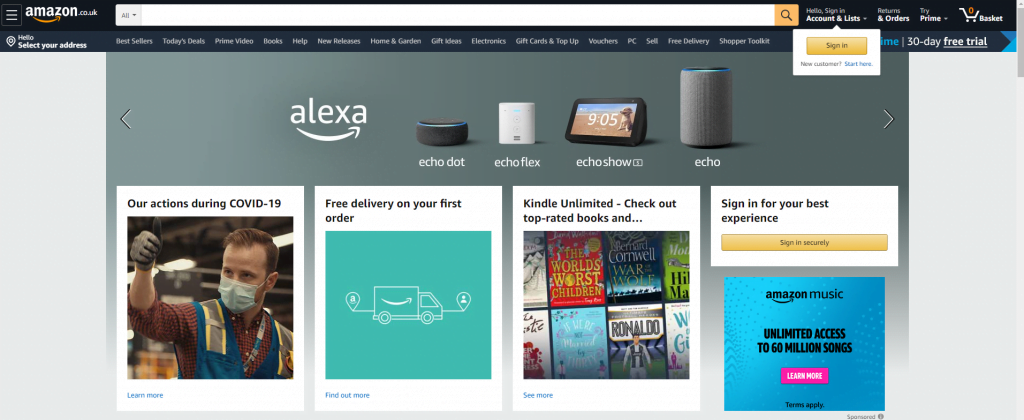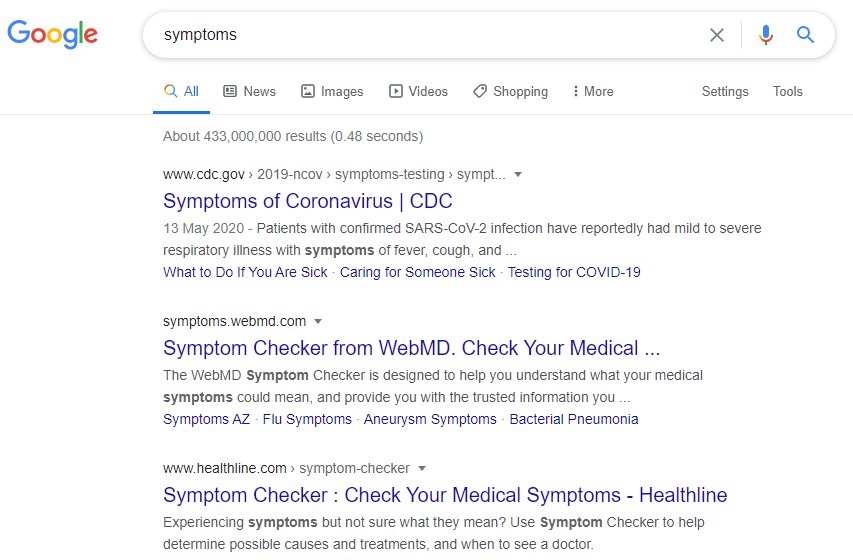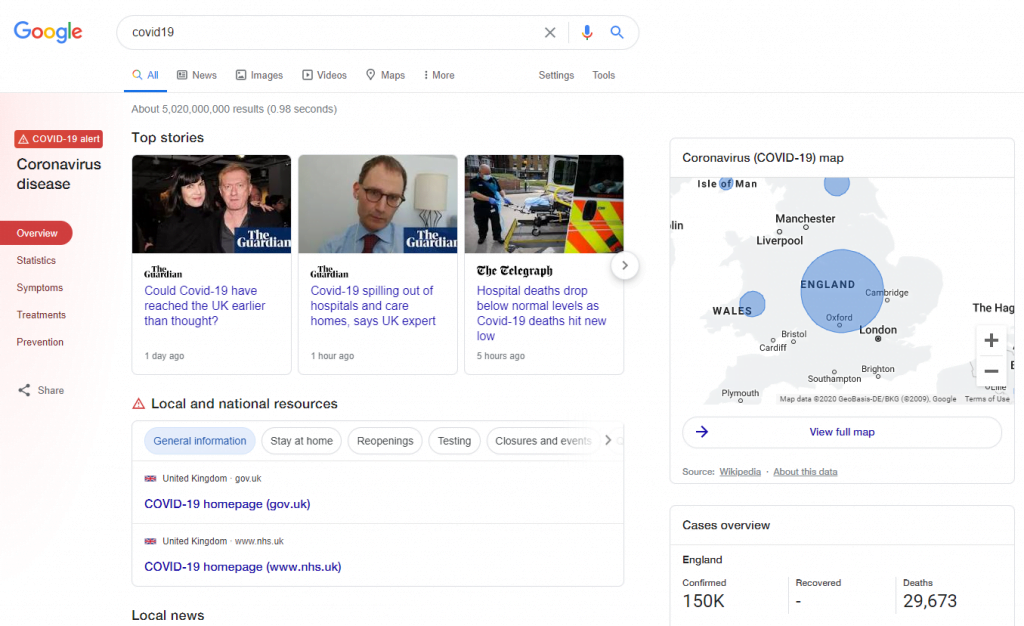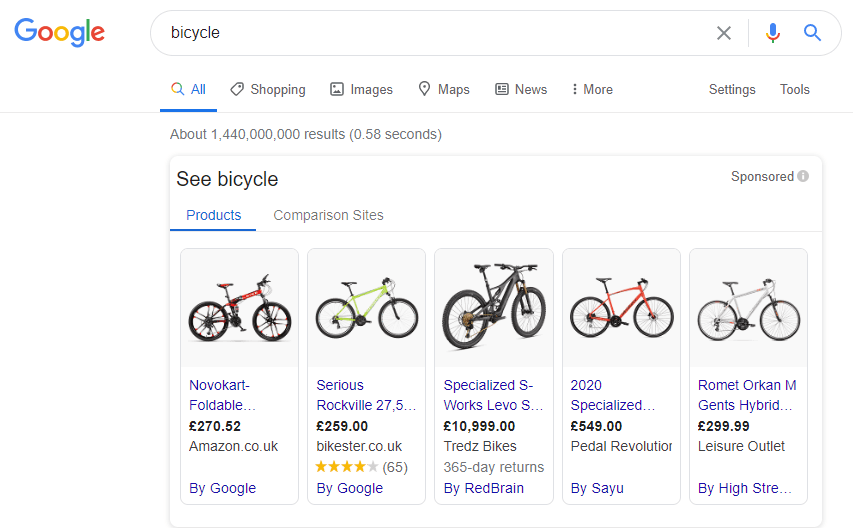The December 2025 Google Core Update Is Complete: What Does It All Mean?
When a Google core update is being rolled out, digital marketers everywhere eagerly wait to…
The Google May 2020 core algorithm update is complete. The result of this has been met with a mixed reception – to say the least.
As far as impact goes, this recent update is on course to surpass even the Medic update from August 2018. While the effects are still being measured, the dust has settled to the point that we can gain an accurate look at how Google’s search results have altered.
With that said, below is an in-depth analysis of the winners and losers of the May 2020 core update, the changes it has introduced, and more.
In certain circles, people have been dissatisfied with the recent May 2020 core update. This is something that naturally happens whenever change is introduced – particularly when it comes to those all-important Google search results.
If you want to see evidence of the negative response, simply view the feedback to the below Tweet from the Google Search Liaison:
The May 2020 Core Update is now rolling out live. As is typical with these updates, it will typically take about one to two weeks to fully roll out.
— Google SearchLiaison (@searchliaison) May 4, 2020
The main grumbles relate to how the ‘whales’ on the internet – aka big brands like Amazon, YouTube, and social media platforms – are profiting from the changes. Rather than placing a focus on high-quality content, it is said that Google is favouring these well-known brands for the top results in search queries. As one Twitter user put it: ‘We invest in deep, 5,000+ words content and we lost traffic to pages with 400 words because they have a high DR.’

Others have simply described it as the ‘worst core update ever.’ This isn’t just for small businesses that have lost their search visibility, either. Some people believe the Google user experience has dropped at an alarming rate. Rather than instantly receiving the content they desire from their search queries, users are faced with ads and irrelevant linksHyperlinks, also known as links, are the connection points on a webpage that take you to other webpages. – causing first page results to be deemed as ‘spam-like.’
Of course, not everyone is disappointed with the May 2020 core update that was rolled out by Google. Those aforementioned giants of the internet world have benefited – that’s clear for all to see. However, there are other industries that have generally received a boost to their search visibility.

For instance, websites that relate to medical information have seemingly grown in relevance. Large outlets such as WebMD, the Mayo Clinic, and Healthline continue to dominate general medical-related enquiries. They have established themselves as a trustworthy and authoritative source on these matters, after all. Nevertheless, smaller websites in this niche are beginning to gain ground and rank among the industry heavyweights.
Why? The reasons for this are not immediately clear. In general, however, it could be down to the overall quality of the content. If a smaller website features the following:
They are seemingly in with a greater chance of ranking high. Now, most of these elements are not exactly new on Google’s radar. In recent years, they’ve placed emphasis on high-quality content that’s informative and easy to read. However, it could demonstrate that, along with delivering extremely helpful content, the personal and real-life approach is being scored higher by Google following the recent update.

Due to the worldwide COVID-19 pandemic, browsing habits have understandably changed as people are stuck in quarantine. Certain interests have become much more in-demand, while others have gone in the opposite direction.
The only question is: Has the quarantine actually had an effect on Google’s latest core update?

It’s true that Google’s search algorithm is sensitive to user expectations. If people are searching for a specific solution to their query, Google wants to deliver the best possible result. If users are satisfied with the web page they receive, guess what: Google is going to see the website as one that’s worth promoting for other queries.
This might explain why two major online shopping portals, Amazon and Etsy, have become even more prominent in search results. These retailers received a bumper amount of traffic during the quarantine – similar to the type experienced during the Christmas season – and Google may be rewarding them with additional SERP positions as a result.
On the other hand, here’s an example of an industry that has been hit by quarantine: gyms and fitness centres. As people are unable to leave their homes, there’s less demand for information about local gyms, membership costs, facilities, and so on. This has resulted in them tumbling down the search list for fitness-related searches.
The correlation between the latest update and quarantine seems to be an obvious one. Yet the changes could merely be a coincidence. So if you want an answer to that previous question, you will have to wait for an official response from Google.
Based on the research and findings that have been conducted since May’s core update was completed, it’s fair to say marketers have become more acquainted with the changes that were implemented. As a result, various different factors have been identified that can make – or break – a website’s ranking score with Google.
A few of these have already been mentioned in the above sections of this blog post. Below are three other elements that can assist a website following the latest core update:
Any marketer that is creating written content knows the general rule is bigger = better. If your blog post is a 5,000-word behemoth packed with facts, figures, and interesting content, this is going to be judged favourably by Google. The reason for this is simple: the people searching for the content will receive the answer they seek, and they’ll also stick around on the page for an extended period of time due to the amount of content available to consume.
However, it’s important to avoid simply pumping up articles to meet a set word count criteria. These days, it’s all too common for blog posts to go off on tangents with the sole purpose of increasing the word count. The problem with this is simple: nobody is interested in these tangents. In the same way people avoid adverts when they pop up during TV shows, they’re going to skip any fat in an article.
This could see your content – and website as a whole – being deemed low quality by Google. People don’t want to be fed filler, and they’ll quickly back away from your site if they can’t find the answer they desire. The less time they spend on an article, the more Google will punish your ranking. This seems to be even more pertinent since the recent round of updates.
Linking to the previous point, being an authority in a particular field can be particularly beneficial for your SERP. If the content integrates first-hand expertise on your subject of choice, this can see your website being adjudged as a more trusted source by Google.
In fact, the recent update points to Google becoming better at identifying an entity that possesses true knowledge and expertise.
Being entirely focused on a particular subject is also important. Large authoritative websites can get away with covering a diverse range of topics, of course. Yet for smaller outlets, the overall message becomes muddled if they’re attempting to cover too much. Google’s latest core update seems to be penalising those who are not entirely based around a certain niche.
Based on research into the recent changes implemented by Google, backlinks is an aspect that may have been significantly altered.

The way in which it has changed is not clear, however. In some circumstances, it can appear that Google has begun to cease counting manufactured backlinks – aka the ones purposefully made with SEO in mind. Instead, they only consider those that have gained natural backlinks due to crafting quality content.
Alternatively, Google may have stopped putting as strong an emphasis on links pointing back to a website. This could be down to the search giant having a greater understanding about the relevancy of content.
While the grievances towards the May 2020 update are fair in certain regards, Google obviously doesn’t want to significantly harm the user experience. They might have a stranglehold on the search market, but they don’t want to lose anyone to their rivals. Yes, they are pushing promoted content more than ever – but they also want to supply users with the right organic results.
Nevertheless, every website needs to understand the changes and adapt. SEO never stops evolving, and you have to go with the flow – otherwise, your site will be left behind with minimal search impact. It’s also imperative you keep up-to-date with any other revelations about the current core update. We have a firm understanding about what Google has changed, but more facts are still to be discovered!
Seasonality can have a huge effect on the success of your business. It is imperative to have a strong digital marketing campaign during periods of high consumer demand.
Here is how to find the perfect link building partner, download today!
Ah, 2021 – the year of volatile Google algorithm updates that shook marketers from within and left website owners scratching…